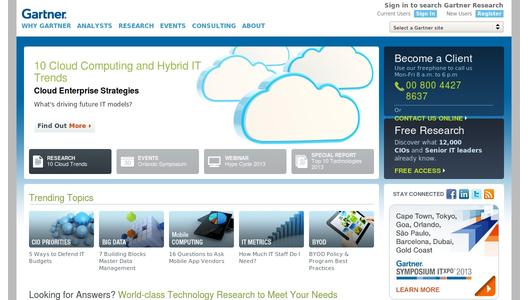Gartner identified the top 15 performers headquartered in Europe, based on a combination of financial metrics (revenue growth, return on assets [ROA] and inventory), and the opinion of peers and Gartner supply chain analysts.
The top five includes four companies from last year - Unilever, Inditex, H&M and Nestlé (that were also listed in Gartner's Global Supply Chain Top 25) - and one new entrant, BASF, which has improved its position steadily. Four new companies joined the European top 15 ranking this year: Danone, L'Oréal, Diageo and GlaxoSmithKline (GSK).
"Top European supply chains span the automotive, chemical, consumer products, life science and retail sectors and are headquartered in a variety of European countries, including France, Germany, Spain, Sweden, Switzerland and the UK," said Christian Titze, research director at Gartner. "Supply chain executives can use Gartner's analysis of these leaders to develop and implement more integrated, collaborative and demand-driven supply chain strategies."
Unilever continues to climb higher in the rankings in 2013, to achieve fourth position on the global Supply Chain Top 25, while maintaining the No. 1 ranking in Europe. Unilever has continued to improve its financial performance and voting scores, demonstrating supply chain excellence and leadership year over year.
Spain's leading fashion retail group, Inditex, maintained the No. 2 position in Europe and reached twelfth position in the global Supply Chain Top 25 in 2013. The company demonstrates continuous growth and leadership, in an often fickle fashion environment, through its ability to manipulate the finer details of its end-to-end supply chain. Inditex also understands its consumers and is highly sensitive to trends. In addition, it effectively engages with social media and often shapes the fashion agenda.
Another fashion retailer, Sweden-based H&M, ranks No. 3 in Europe and seventeenth globally. This fast-moving retailer also uses social media effectively to sense what young and fashionable shoppers want. It is highly proficient at managing its product life cycles and can refresh its fashion ranges many times within retail seasons.
Nestlé, the Swiss food giant with diverse lines of business, maintains the No. 4 spot in Europe. Vendor management, the use of network modelling and a focus on sustainability have been crucial to improving its supply chain performance.
At No. 5, BASF, the Germany-based chemical giant, has been on the top 25 list for three consecutive years, and has improved in all categories this year. BASF has a complex value network that operates across several large sites around the world, with the output from one process used as primary material in another. This system requires complex design and operating schemes.
"Top European-headquartered supply chains bring a wide range of best practices to the supply chain community, ranging from advanced collaboration practices with upstream and downstream partners, to innovations in demand sensing and shaping capabilities, to integrated business planning that brings sales and operations planning to the next level," Mr Titze said.
Additional information is available in the report entitled "2013 Gartner Supply Chain Top 25: Europe" at http://www.gartner.com/technology/supply-chain/top25.jsp.
About the Gartner Supply Chain Top 25
The Supply Chain Top 25 rankings comprise two main components: financial and opinion. Public financial data gives a view of how companies have performed in the past, while the opinion component provides an eye to their future potential and reflects their expected future leadership, a crucial characteristic. These two components are combined into a composite score. Gartner analysts derive a master list of companies from the Fortune Global 500 and the Forbes Global 2000, with a revenue cut-off of $10 billion. Gartner then pares the combined list down to the manufacturing, retail and distribution sectors, thus eliminating certain industries - such as financial services and insurance.

